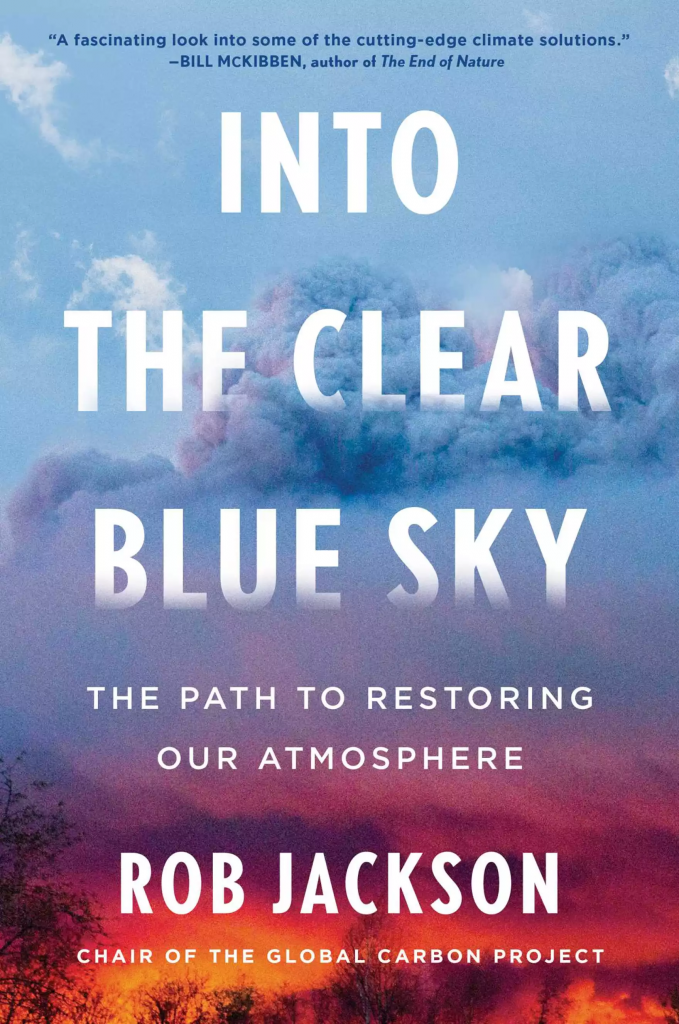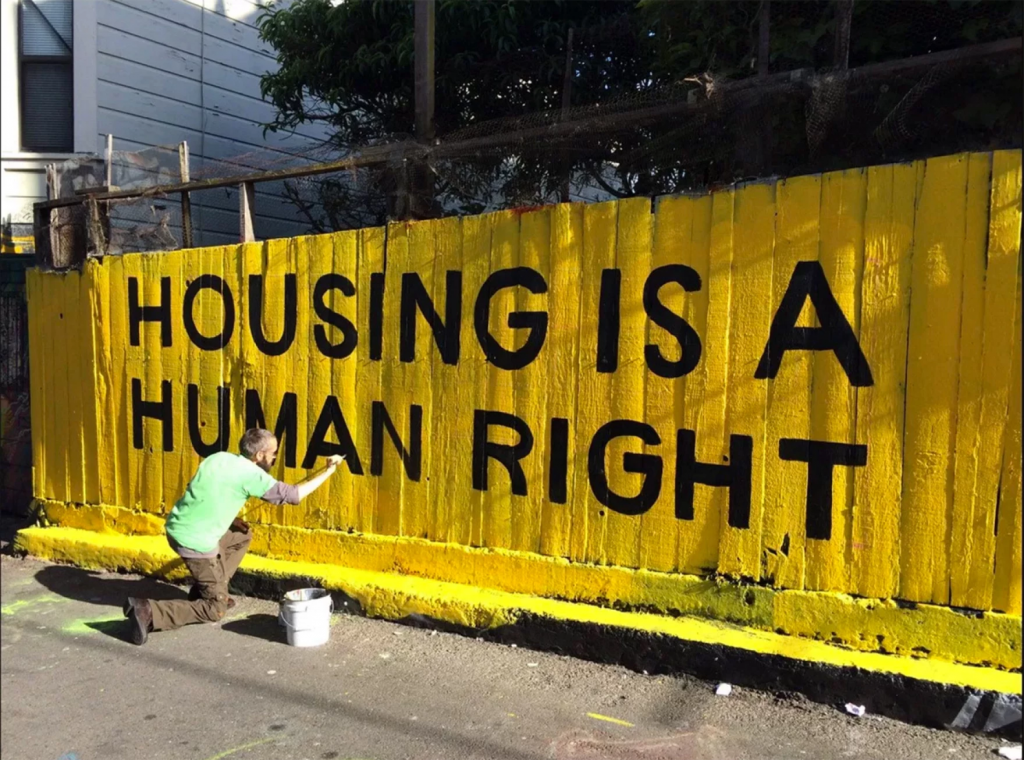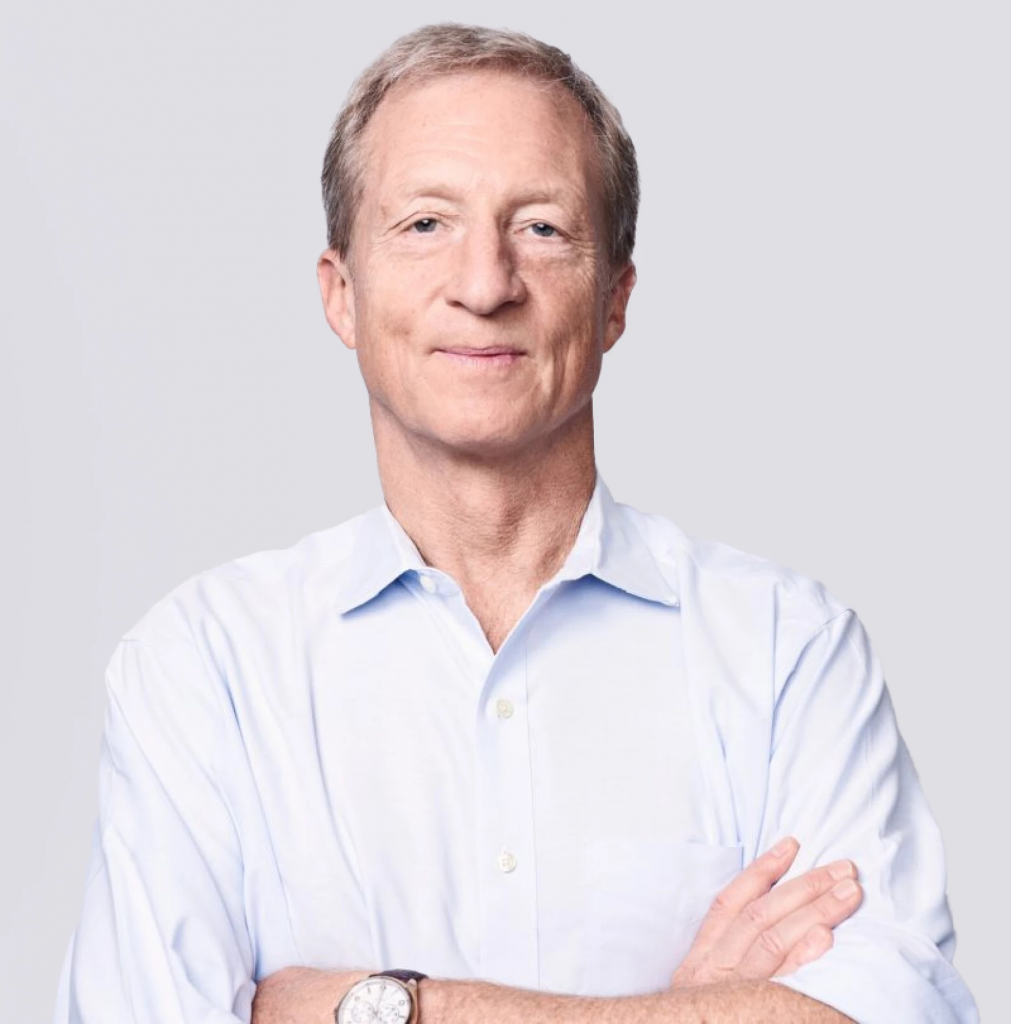
Tonight on State of the Bay, local sports journalist Steve Berman from The Athletic will update us on the Niners, Warriors and other Bay area sports teams.
Then, we dig into California’s Prop 4, the $10 billion bond to fight climate change with a panel of experts. Is it worth your vote? Tune in and decide for yourself! Guests include:
- Ari Platcha from the Sacramento Bee
- Sarah Atkinson from SPUR
- Allison Chan from Save the Bay.
Finally, we’ll hear from celebrated local dancer and choreographer Micaya about the 26th annual SF International Hip Hop Dance Fest.
Tune in at 91.7 FM in the San Francisco Bay Area or stream live tonight at 6pm PT. What comments or questions do you have for our guests? Call 866-798-TALK to join the conversation!

Tonight on State of the Bay, we’ll explore Sonoma County’s Measure J with Phil Barber, staff writer with The Press Democrat. Measure J aims to prohibit concentrated animal feeding operations, or large animal farms in Sonoma County. This contentious initiative could reshape the county’s environmental and economic future. What do farmers and residents stand to gain or lose?
We’ll also hear from Stanford climate scientist Rob Jackson about his new book, Into the Clear Blue Sky: The Path to Restoring Our Atmosphere, and the reasons he remains hopeful despite the climate crisis.
Later, we’ll talk with New York Times reporters Kate Conger and Ryan Mac, co-authors of Character Limit: How Elon Musk Destroyed Twitter. What has Musk’s takeover meant for free speech and the future of social media?
Tune in at 91.7 FM in the San Francisco Bay Area or stream live tonight at 6pm PT. What comments or questions do you have for our guests? Call 866-798-TALK to join the conversation!

It’s double duty for me today on KALW, where I’m hosting two leading climate scholars for Your Call at 10am and then hosting State of the Bay at 6pm PT on the chaos at San Francisco Unified and the state of housing in California.
The action kicks off at 10am PT with:
- Naomi Oreskes, Henry Charles Lea Professor of the History of Science and Affiliated Professor of Earth and Planetary Sciences at Harvard University, and author of nine books including her best-selling Merchants of Doubt: How a Handful of Scientists Obscured the Truth on Issues from Tobacco Smoke to Global Warming; and
- Michael Mann, Presidential Distinguished Professor in the Department of Earth and Environmental Science at the University of Pennsylvania, with a secondary appointment in the Annenberg School for Communication, and author of several important books including The New Climate War: The Fight to Take Back Our Planet
I’ll ask them about Hurricane Helene and what it says about climate change, plus the just-concluded Climate Week in New York City that coincided with the UN general assembly.
Then at 6pm PT, join us on State of the Bay for the latest on the San Francisco Unified School District, with an ongoing fiscal crisis, just-announced delay of potential school closures, and emergency scrutiny of the superintendent. Jill Tucker, education reporter with the San Francisco Chronicle, will unpack it all.
Then we’ll hear about new efforts to address California’s housing shortage with experts Chris Elmendorf, professor of law at the University of California, Davis, School of Law, and Ben Metcalf, managing director of the Terner Center for Housing Innovation at UC Berkeley.
Finally, we’ll sit down with Obi Kaufmann, the artist, author and naturalist who has published a series of beloved books about his home state of California.
Tune in at 91.7 FM in the San Francisco Bay Area or stream live at 10am PT for Your Call and then again at 6pm PT for State of the Bay. What comments or questions do you have for our guests? Call 866-798-TALK to join the conversation!

Tonight on State of the Bay we’ll talk with pollster Mark Baldassare, Statewide Survey Director of the California Public Policy Institute, to find out who the likely voters are in this November’s election and how they feel about the statewide ballot measures.
Then we’ll talk to Tom Steyer, climate investor and 2020 presidential candidate, about his new book Cheaper, Faster, Better: How We’ll Win the Climate War.
Then we’ll hear from Rahsaan Thomas, executive director of Empowerment Ave, a Bay Area organization that helps incarcerated people put their art out in the world.
Tune in at 91.7 FM in the San Francisco Bay Area or stream live at 6pm PT. What comments or questions do you have for our guests? Call 866-798-TALK to join the conversation!

California regulators had an opportunity this year to be a global leader on requiring airplanes to use low-carbon jet fuel. But the Air Resources Board announced earlier this month that it will back off from its earlier proposal to require jet fuel providers to decarbonize, through the agency’s landmark low carbon fuel standard program.
Why the change? The agency’s official explanation was a head scratcher, noting that jet fuel suppliers could avoid having to actually provide low-carbon fuel to airplanes by buying credits from an entity with surplus credits to sell. But that is the whole point of this market-based program: regulated entities can either reduce the carbon in their products or pay someone else to do it. Either way, the mandate is in effect and the higher cost of carbon becomes a disincentive to pay to burn it.
So what’s really going on? The potential subtext of the agency’s decision (besides the political pressure from the aviation industry against any such mandate) is fear over lawsuits. Specifically, the airline industry has asserted that California is wholly preempted by various federal laws from mandating any sort of decarbonization of jet fuel.
But the industry overstates the risk of preemption, as a forthcoming CLEE legal analysis will document. There are three federal statutes at issue when it comes to aviation and federal preemption, which our report will detail. Despite their existence, California still has runway (ahem) to regulate jet fuel.
First, the Clean Air Act governs regulation of airplane engines and associated emissions. But in this case, California would not require airlines to change their engines or meet specific emissions standards. Instead, the low carbon fuel standard solely regulates the fuels as inputs. And when low-carbon biofuels blend with fossil jet fuel (the most common type of sustainable aviation fuel), no engine modifications are necessarily required.
Second, the Airline Deregulation Act prevents states and local governments from interfering with the national aviation market, if they take action “related to” prices, routes and services. A mandate for blending lower-carbon fuels into fossil jet is on its face not “related” to these specific economic features of a national aviation market. But if the fuels requirement became stringent enough to significantly affect the prices consumers pay or where airlines schedule refueling or routes, there is likely an outer limit to what California can require on fuels without risking preemption. As a result, the board would need to craft the regulation carefully to avoid these significant impacts.
Finally, the Federal Aviation Act could preempt state laws on jet fuel if the agency set forth national requirements for low-carbon jet fuel, but to date it has not yet finalized any such rule. And in that absence, California has leeway to regulate.
(And if you’re wondering about a separate potential challenge based on the “dormant” commerce clause of the U.S. constitution, where state action creates an unjustified and significant barrier to free trade among states, such a challenge to the low carbon fuel standard program was already rejected by the Ninth Circuit in 2019, with the US Supreme Court declining to review.)
Why does the Air Resources Board’s recent change in policy matter? Aviation is arguably the hardest-to-decarbonize sector in our economy, and policy could help jumpstart solutions. No single technology otherwise currently exists to cover all of our aviation needs in the long term, despite progress on batteries, hydrogen, and potentially “e-fuels,” which combine captured carbon with zero-emission hydrogen to create a synthetic, carbon-neutral fuel that can combust in current engines just like fossil fuel.
So in the short run, the Air Resources Board had an opportunity to require airlines to blend in more low-carbon biofuels with fossil jet fuel, lowering the carbon content while sending a clear policy signal to the industry that research and investment must begin now on these longer-term solutions. This is what Governor Newsom required when he directed the Board in 2022 to “adopt an aggressive 20% clean fuels target for the aviation sector.”
With its low carbon fuel standard, California is well positioned not just to offer more carrots to the airline industry to achieve these targets, but an actual stick to ensure compliance. At the same time, a legal pathway to achieve this goal and avoid preemption remains open, as our forthcoming report will discuss in more detail. Instead, by reversing course with this decision, the state now risks a delayed departure when it comes to more sustainable air travel.
California has groundbreaking goals to require automakers to sell, and large fleets to purchase, zero-emission trucks and buses in increasing percentages, starting this year. But these goals will only be achievable if the state has sufficient charging infrastructure to fuel the vehicles, along with available financing to help truck owners purchase or lease them.
To address these dual needs, UC Berkeley Law’s Center for Law, Energy and the Environment (CLEE) and the UCLA Law Emmett Institute on Climate Change and the Environment are today releasing the new report Fueling & Financing: Addressing the Urgent Challenges Facing Electric Heavy-Duty Vehicle Deployment.
The report offers a suite of recommendations for policy makers and industry leaders to help address the key challenges to infrastructure deployment and financing, based on two convenings with a group of expert stakeholders. Some key recommendations include:
- The Legislature and California Public Utilities Commission could require utilities to improve energization timelines and authorize utilities to advance expenditures to fund grid upgrades for heavy-duty charging infrastructure sooner
- The Governor could create an executive level “charging working group” or “czar” with the authority to ensure coordination and hold accountable state agencies responsible for the deployment of charging infrastructure to support the heavy-duty vehicle sector
- The California Legislature and Air Resources Board could modify Hybrid and Zero-Emission Truck and Bus Voucher Incentive Project (HVIP) funding to ensure more targeted uptake by fleets more readily able to electrify
- The California Infrastructure and Economic Development Bank (IBank) and Air Resources Board could facilitate private-sector lending for heavy-duty electric vehicles and associated infrastructure
- The California IBank or Legislature could expand and expedite loan loss reserve programs to offset investor and insurer concerns about the residual value of used vehicles
By implementing these and other solutions, California leaders can ensure the transition is feasible, which is crucial to the state’s broader climate and air pollution goals. The California Air Resources Board reports that in 2021, heavy-duty trucking was responsible for over 30 million metric tons of greenhouse gas emissions, making up roughly 10% of the state’s total emissions. The pollution from these vehicles also disproportionately affects low-income and disadvantaged communities, exacerbating public health issues and deepening environmental injustices.
Zero-emission electric versions of these vehicles are already on the road and becoming more widely available. But the California Energy Commission estimates that by 2030, the state will require 114,500 charging stations to accommodate the projected 155,000 medium- and heavy-duty electric trucks and buses. In addition, the upfront price of battery-powered heavy-duty vehicles is currently higher than their fossil-fueled counterparts, leading to the need for financial assistance for many purchasers, particularly smaller fleets.
For this transition to succeed, it will require not just technological innovation but also robust policy support and financial investment. The solutions outlined in this report can hopefully offer a path for state policymakers to ensure that the decarbonization of heavy-duty vehicles is feasible and rapid, while addressing urgent equity, climate, and economic concerns.
Fueling and Financing is the latest release from the Climate Change & Business Research Initiative, a collaboration between Berkeley Law’s Center for Law, Energy, & the Environment (CLEE) and UCLA Law’s Emmett Institute on Climate Change & the Environment. Since 2009, initiative leaders have published a series of policy papers and organized multiple events on how climate change will create opportunities for specific sectors of the business community and how policymakers can facilitate those opportunities.
To learn more, register for our webinar on the report on Thursday, September 19th at 10am PT, featuring a keynote by Dr. Steven Cliff, Executive Officer at the California Air Resources Board, followed by a panel discussion with Niki Okuk, Deputy Director of Trucks and Off-Road at CALSTART and Adam Browning, Executive Vice President at Forum Mobility.
Read the full report here.
This post was co-authored by CLEE climate fellow Shruti Sarode.
On today’s Your Call Media Roundtable, we’ll speak with award-winning investigative journalist Nate Halverson about THE GRAB, a riveting new documentary that investigates how wealthy governments, private investors and mercenaries are working to seize food and water resources around the world, at the expense of local communities.
As climate shocks and food shortages worsen, these groups are now establishing themselves as the new OPEC, where the future world powers will be those who control not oil, but food and water resources. The documentary focuses on the impacts of communities from Arizona to Zambia.
Tune in at 91.7 FM in the San Francisco Bay Area or stream live at 10am PT. What comments or questions do you have for our guest? Call 866-798-TALK to join the conversation!

I’ll be a guest on KQED Forum at 10am PT today for our In Transit series, this time discussing the future of Amtrak and long-distance passenger rail in California.
Amtrak reports that overall demand for passenger rail is soaring, as yearly ridership totals approach pre-pandemic levels. But here in California the story is different. Popular west coast lines are losing riders and remain challenged by underinvestment and too much track priority to freight trains. In addition, increasingly powerful storms and rising seas threaten Amtrak’s infrastructure, with Southern California’s Pacific Surfliner has repeatedly suspended service for emergency repairs.
Joining me as a panelist on the show will be Tom Zoellner, English professor at Chapman University and author of “Train: Riding the Rails That Created the Modern World -from the Trans-Siberian to the Southwest Chief.”
Tune in on KQED 88.5 FM in the San Francisco Bay Area or stream live at 10am PT!

Tonight on State of the Bay, we’ll delve into the challenges facing California’s wine industry with Esther Mobley, senior wine critic at the San Francisco Chronicle.
We’re also joined by Seamus Murphy, executive director of The San Francisco Bay Area Water Emergency Transportation Authority, who will share the details of a 25-year plan to enhance, expand and electrify the San Francisco Bay Ferry System.
Finally, we’ll hear from psychedelic comedian Adam Strauss about his one-man show,”The Mushroom Cure.”
Tune in at 91.7 FM in the San Francisco Bay Area or stream live at 6pm PT. What comments or questions do you have for our guests? Call 866-798-TALK to join the conversation!




